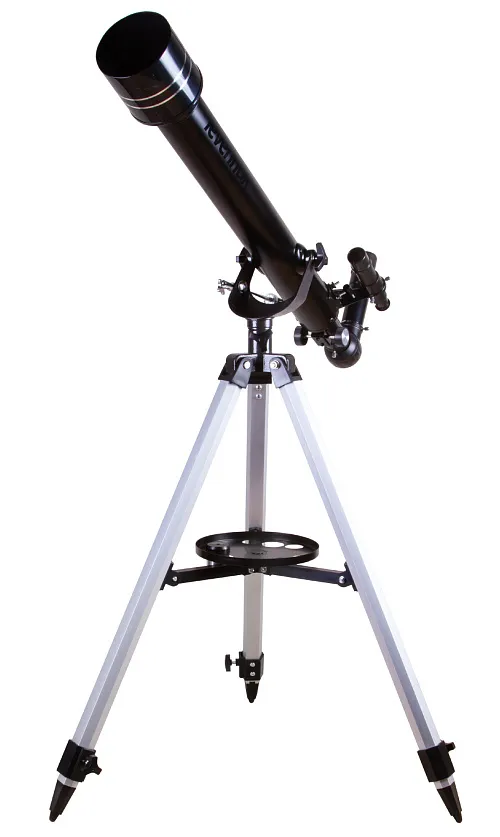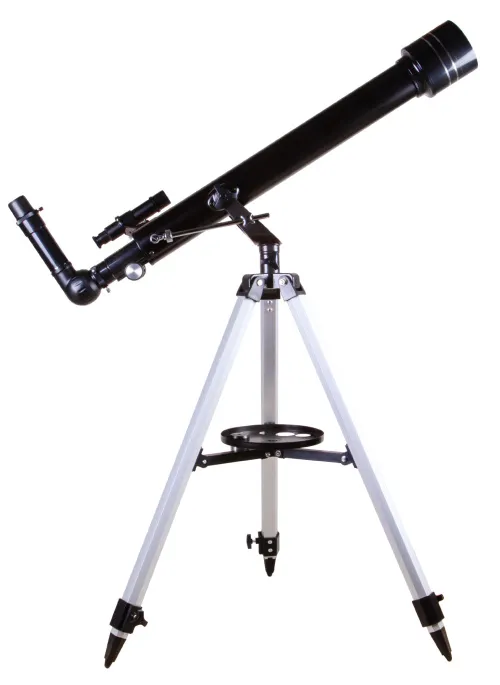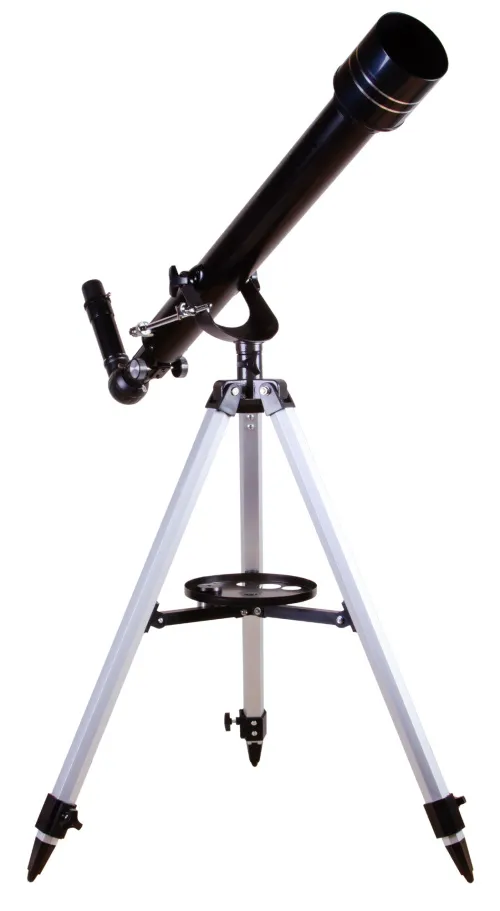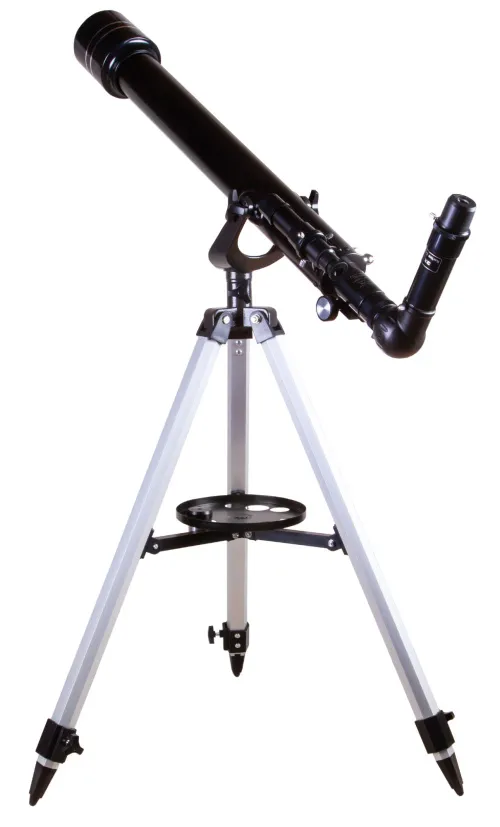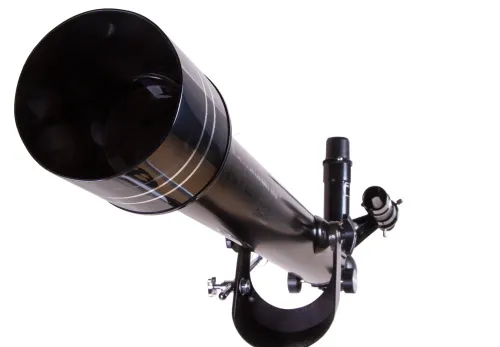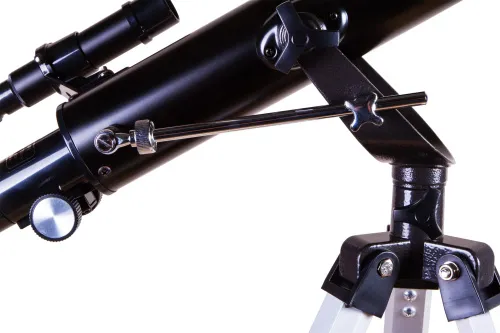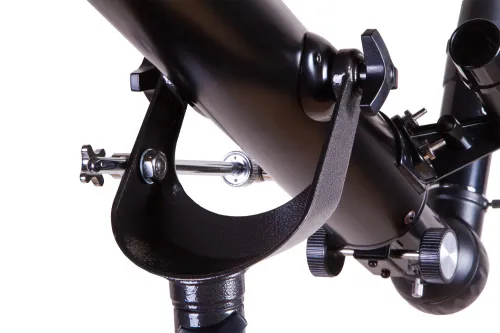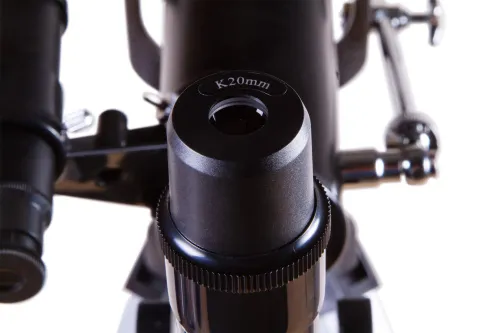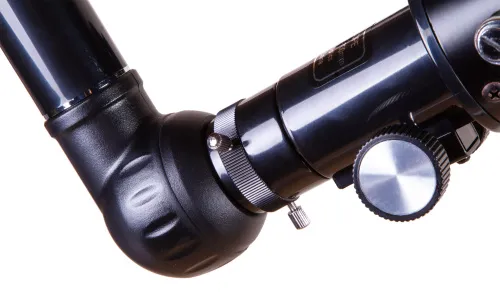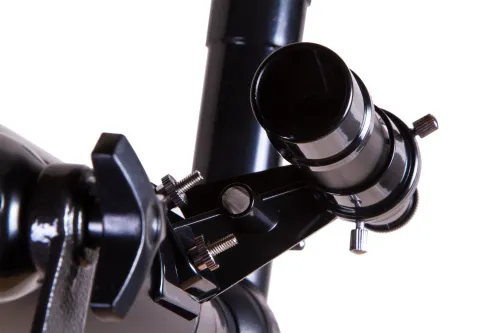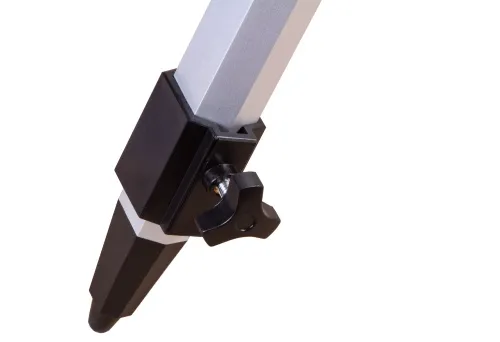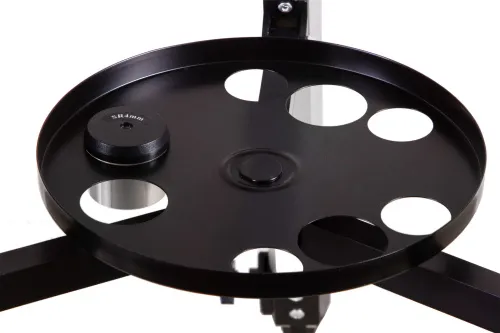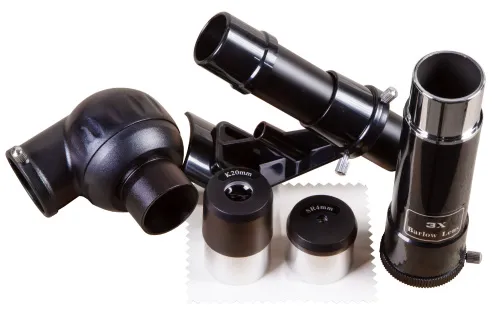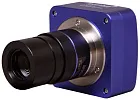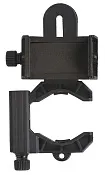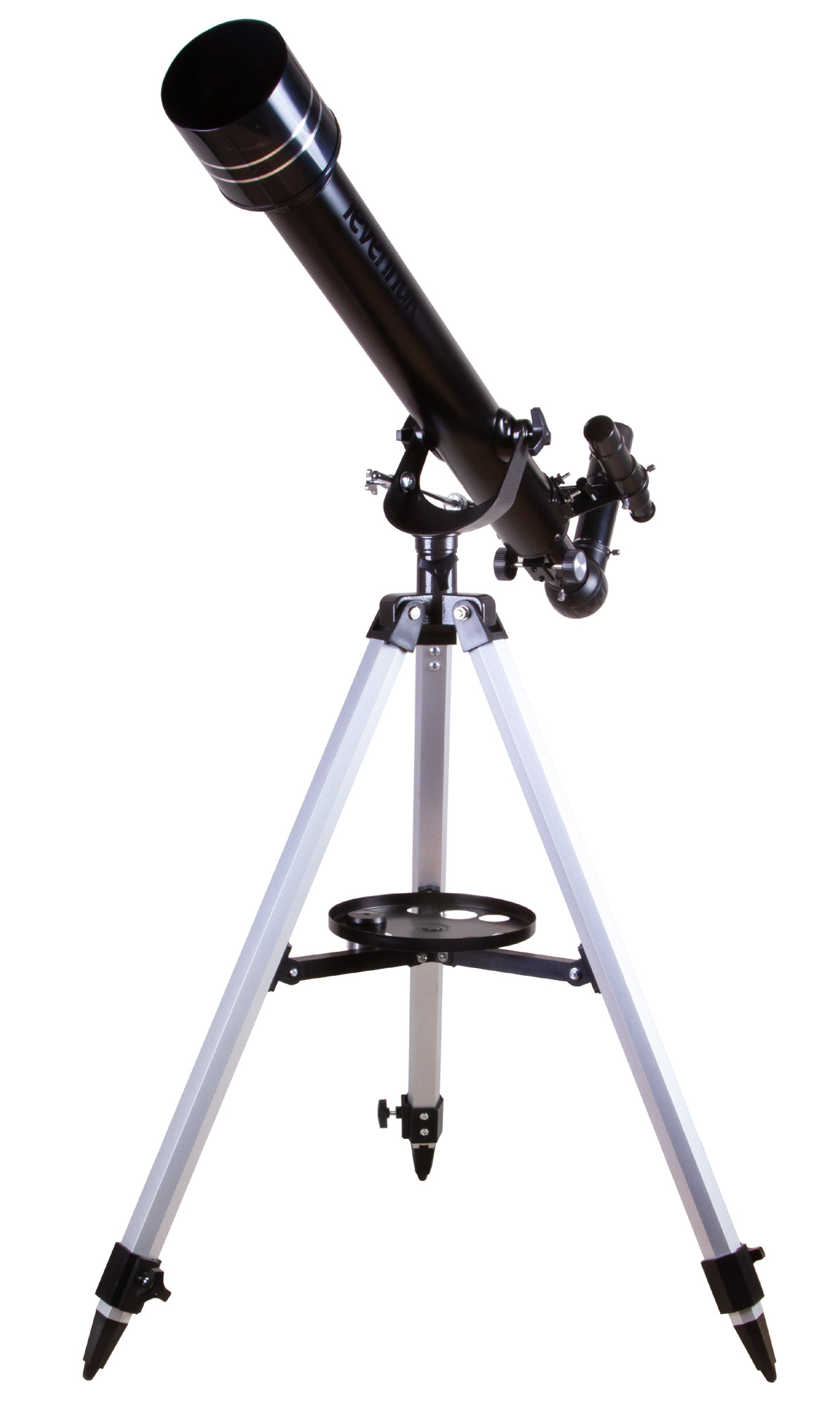Levenhuk Skyline BASE 60T Telescope
Refractor. Aperture: 60mm. Focal length: 700mm
| Product ID | 72847 |
| Brand | Levenhuk, Inc., USA |
| Warranty | lifetime |
| EAN | 5905555002279 |
| Package size (LxWxH) | 85x28x19 cm |
| Shipping Weight | 4 kg |
Levenhuk Skyline BASE 60T is a refractor used for observing Moon craters, phases of Venus, dim and double stars, or terrestrial objects. Levenhuk Skyline BASE 60T is suitable for observing the beauties of the Universe, but is it especially great for exploring outer space. That is why a beginner astronomer or a kid interested in science will distinguish this telescope among similar models. Due to its simple operation and extended kit, this telescope is excellent for first observations and will be a desired gift for many astronomy enthusiasts.
Inside the telescope, there are fully coated glass optics. The lenses transmit a sharp and contrast image, do not fog up, and deliver even dim objects in a good quality. The optical tube is mounted on an alt-azimuth mount. It does not take much time to learn its operating principle: even a kid will quickly figure out how to operate the telescope. An optical finderscope helps you track the objects in the sky or on the horizon. It comes in the kit and provides a 5x magnification.
Apart from the finderscope, there are also other accessories in the box. Two eyepieces are necessary for the correct magnification choice. An eyepiece with a short focal length increases the magnification up to 175x, the other eyepiece with a long focal length provides a 35x magnification. The higher magnification, the more detailed object you can see; low magnification allows observing extended objects. The kit includes a diagonal prism. This accessory is used for studying terrestrial objects. Telescopes deliver a distorted image (flipped upside down), which is unsuitable for terrestrial observations. A diagonal prism corrects this distortion and makes the image appear in the normal way.
An aluminum tripod is used for mounting the telescope. It is stable and reliable. Due to its legs with adjustable height, the tripod stands steadily even on a rough surface. There is an accessory tray included.
Features:
- Refractor with coated optics, mounted on an alt-azimuth mount
- Easy-to-operate telescope; the delivered image is always sharp and clear
- Ideal for studying terrestrial objects, the Moon, planets of the Solar system
- An excellent gift for a kid or beginner astronomer
- The kit includes eyepieces and a diagonal prism
The kit includes:
- Telescope optical tube
- Alt-azimuth mount
- Aluminum tripod with an accessory tray
- 5x24 optical finderscope
- SR4mm (175x) eyepiece
- H20mm (35x) eyepiece
- 3x Barlow lens
- Diagonal prism
- User manual and lifetime warranty
| Product ID | 72847 |
| Brand | Levenhuk, Inc., USA |
| Warranty | lifetime |
| EAN | 5905555002279 |
| Package size (LxWxH) | 85x28x19 cm |
| Shipping Weight | 4 kg |
| Optical design | refractor |
| Optics material | optical glass |
| Optics coating | standard |
| Objective lens diameter (aperture), mm | 60 |
| Focal length, mm | 700 |
| Highest practical power, x | 120 |
| Aperture ratio | f/11.6 |
| Limiting stellar magnitude | 11.4 |
| Eyepieces | H20mm (35х), SR4mm (175х) |
| Eyepiece barrel diameter, in | 1.25 |
| Barlow lens | 3x |
| Finderscope | optical, 5x24 |
| Tripod | aluminum |
| Tripod height (adjustable), mm | 690–1190 |
| Accessory tray | ✓ |
| Telescope control | manual |
| Mount | alt-azimuth, AZ1 |
| Optical tube material | aluminum |
| User level | elementary, beginners |
| Assembly and installation difficulty level | extremely simple |
| Observed object | planets of the Solar System, terrestrial objects |
Convenient diagrams that describe how to install additional accessories on refractors and catadioptric telescopes
Find out how to assemble a telescope on an example of the Levenhuk Skyline 90x900 EQ telescope
This short guide will help you avoid typical mistakes and learn more about telescope and mounting types
The basics of astronomical observations for beginners
In this article we have gathered answers to some of the most frequently asked questions about telescopes
The most interesting celestial objects you can observe with Levenhuk telescopes
How telescopes work?
You can actually perform observations from your balcony!
All about telescope sizes, types, magnification, and mounts
Learn how to set up and use the telescope properly
Astronomy in light-polluted skies. Find out what you can observe in the city
Read an interesting comprehensive article on telescopes for little astronomers
The pictures are made with Levenhuk telescopes
Celestial objects you can observe with telescopes of different apertures
Colored and vivid images of galaxies, planets and star clusters entrance everyone who is fascinated by boundless space
Find an interesting review on the history of the changes to a refracting telescope
To make the process of choosing a telescope easier, we will tell you about the characteristics of the most popular types of telescopes today
Learn everything you need to know about refractor telescopes to make the right choice

